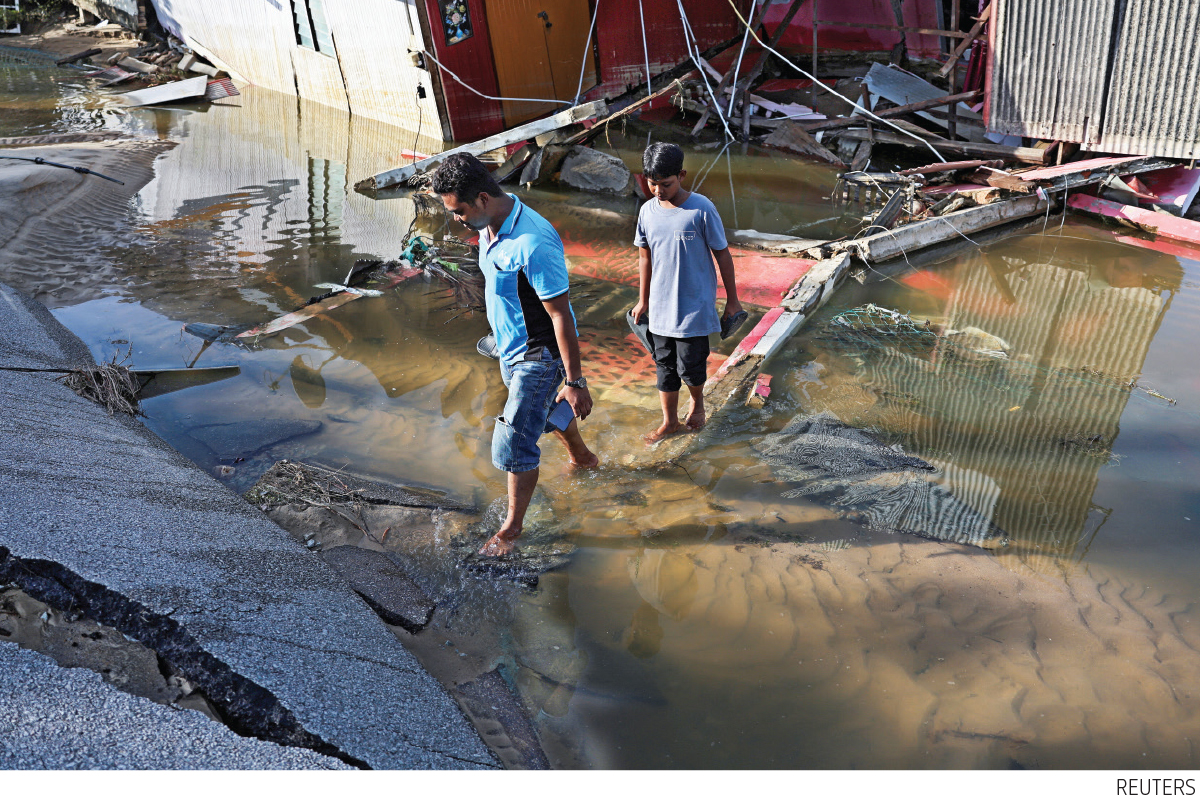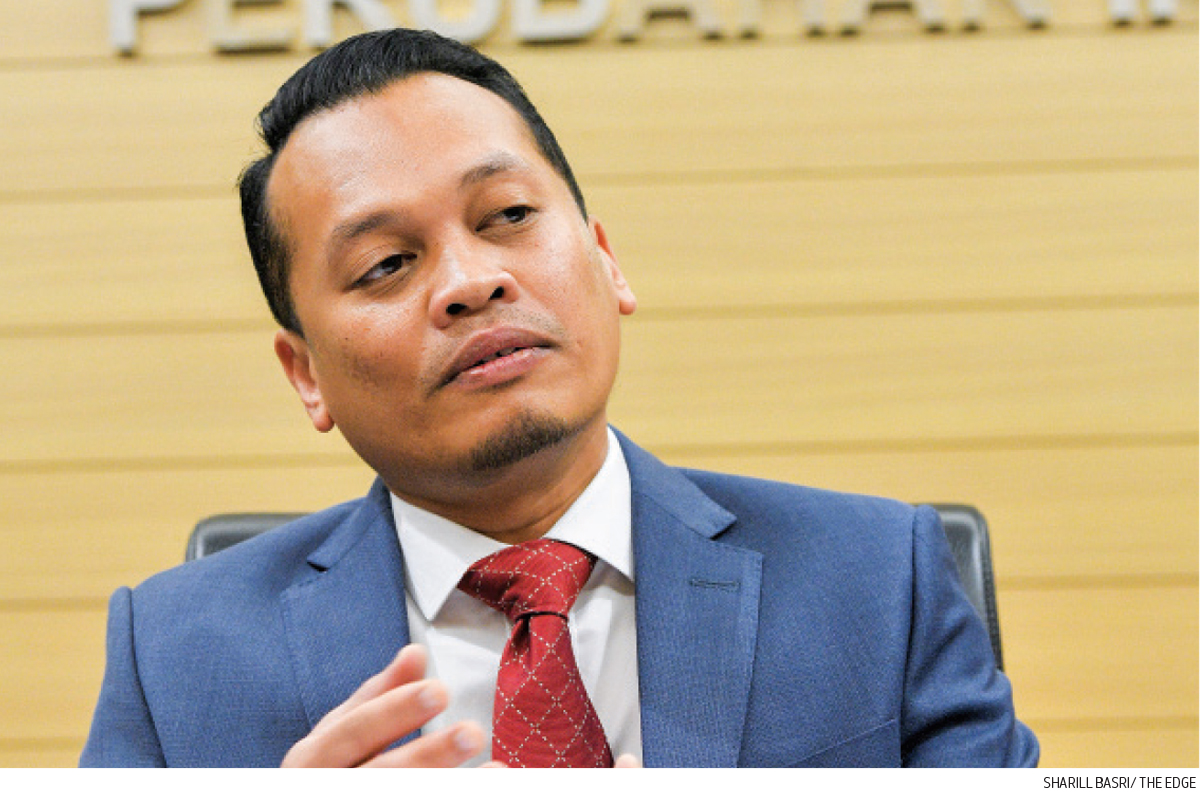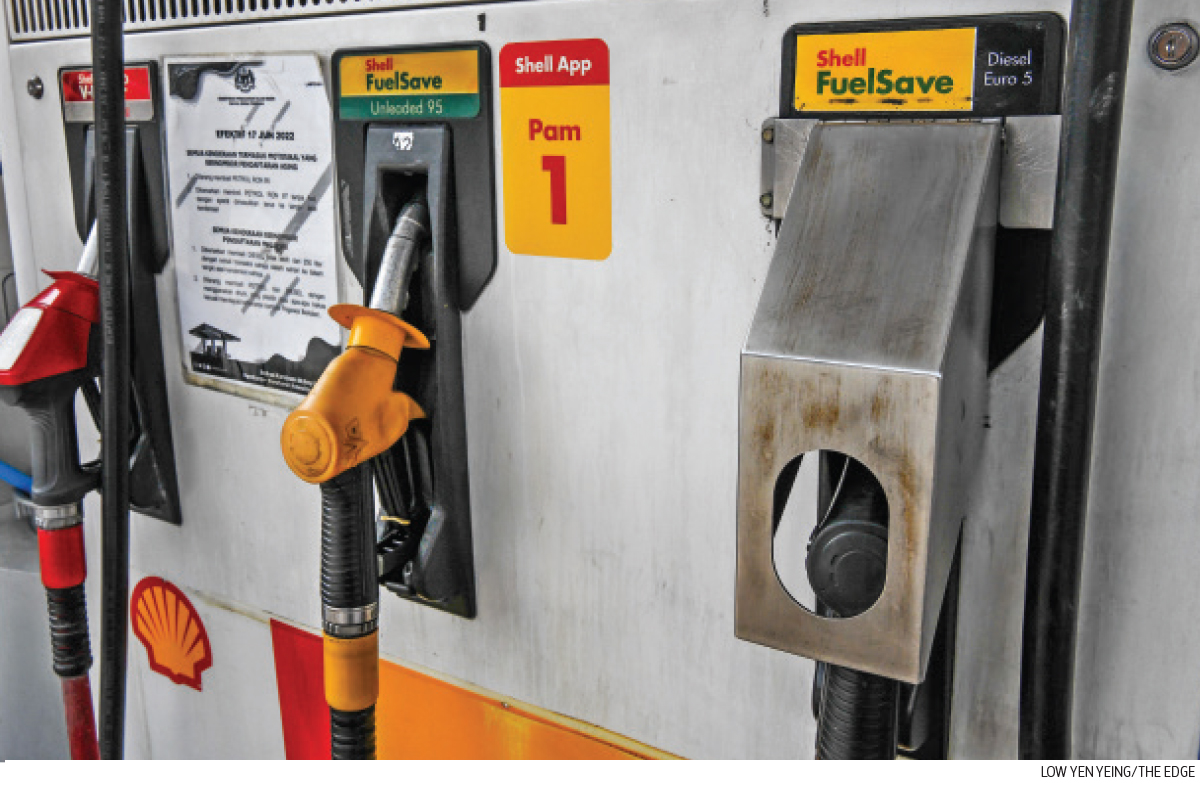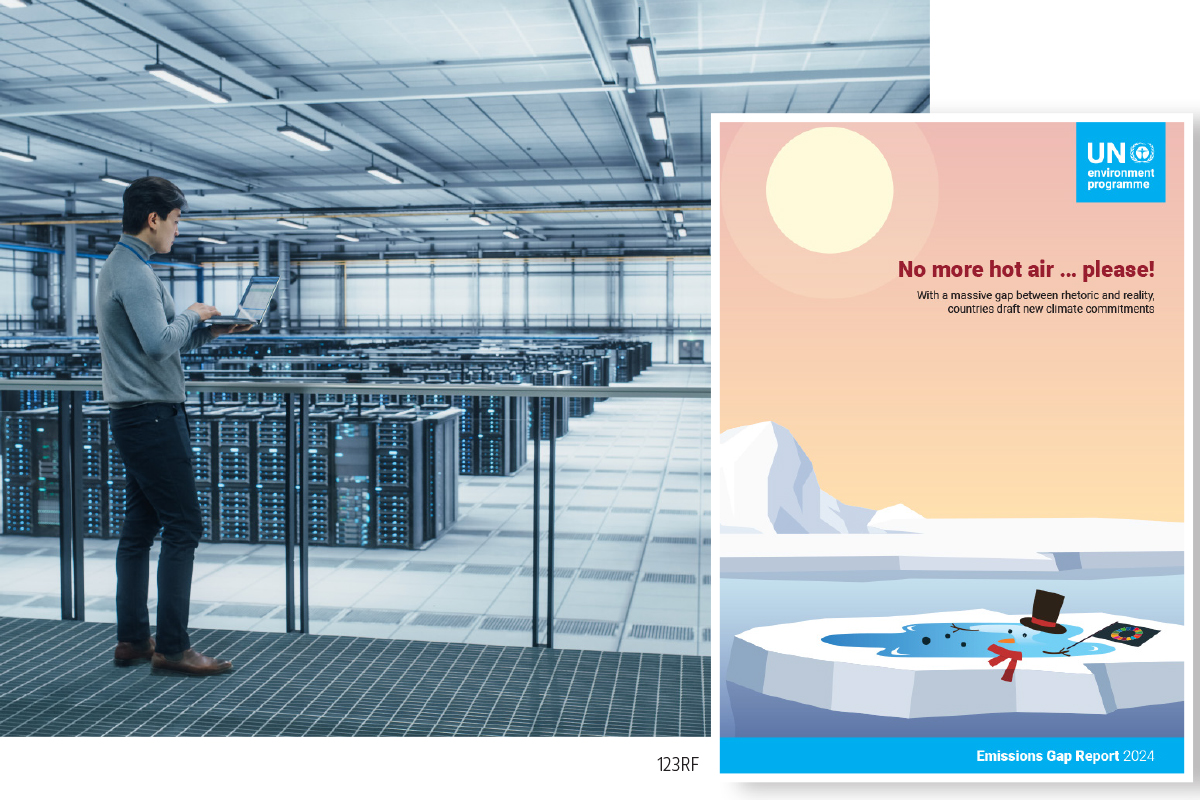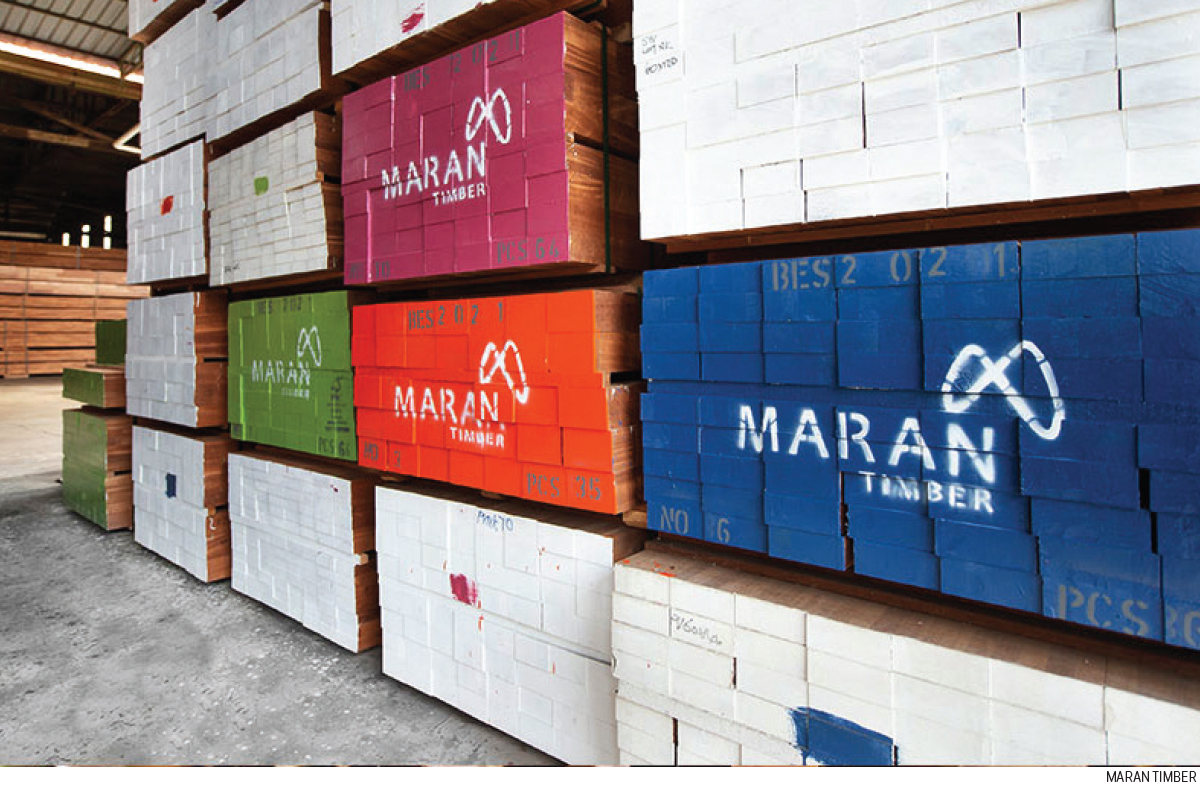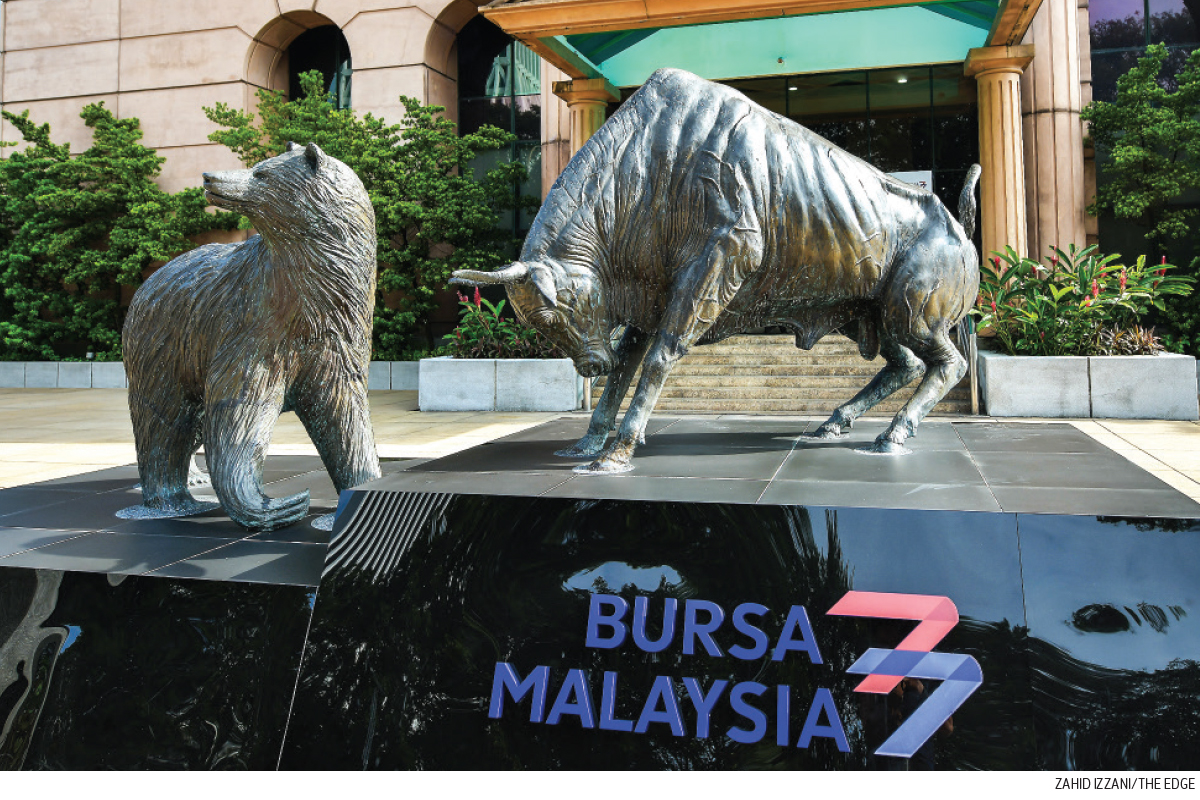This article first appeared in The Edge Malaysia Weekly on December 30, 2024 - January 12, 2025
January
• Preparing for targeted fuel subsidies: The government launches the central database hub or Padu initiative for Malaysians to update their socioeconomic data and enable more efficient delivery of subsidies
• Annual floods: Parts of Terengganu, Johor, Pahang and Kelantan are inundated by floods after heavy downpours
• Microplastics: A study in the Proceedings of the National Academy of Sciences of the United States finds that an average litre of bottled water has nearly a quarter million invisible pieces of nano-plastics, which were detected and categorised for the first time using a microscope with dual lasers
• 2023 was the hottest year: Nasa says the average surface temperature in 2023 was around 1.2°C above the average for the baseline period of 1951 to 1980, becoming the warmest on record
• Paying more for water: The National Water Services Commission announces that water tariffs for domestic users in Peninsular Malaysia and Labuan will increase by an average of 22 sen per cu m from Feb 1
• Delay in the European Union (EU) sustainability regulation: Members of the European Parliament approve a two-year delay to June 2026 for non-EU companies and those in specific sectors to submit a sustainability report under the Corporate Sustainability Reporting Directive
February
• Exchange of ESG data: Bursa Malaysia Bhd, the Indonesia Stock Exchange, The Stock Exchange of Thailand and the Singapore Exchange collaborate on the Asean-Interconnected Sustainability Ecosystem to implement common ESG metrics in their data infrastructure
• More battery electric vehicles (BEV): Deputy Minister of Investment, Trade and Industry Liew Chin Tong says sales volume of new BEVs in 2023 saw a 400% increase to reach 13,257 units. Additionally, as at Dec 31 last year, 2,020 chargers had been deployed to 750 locations nationwide.
March
• Palm oil issues: The World Trade Organization rules that the EU’s Renewable Energy Directive — which limits the use of food and feed crop-based biofuels, such as palm oil, to meet the EU’s energy consumption target for the transport sector — is discriminatory
• A federal policy for carbon markets: The Ministry of Natural Resources and Environmental Sustainability (NRES) is conducting a study on the National Carbon Market Policy
• Critical materials: Malaysia establishes a Parliamentary Caucus for Critical Minerals to develop policy recommendations for the exploration, extraction, processing, recycling and diplomacy of critical materials
• Higher penalties for environmental crimes: The Dewan Rakyat passes the Environmental Quality (Amendment) Bill 2023, which increases penalty rates and fines and enables actions to be taken against environmental offenders
• A new incentive for residential solar installations: The Ministry of Energy Transition and Water Transformation (Petra) introduces the “solar for rakyat” or SolaRIS programme, which offers a rebate of RM1,000 per kilowatt alternating current up to RM4,000 to new Net Energy Metering quota holders
April
• Carbon storage in Malaysia: Petroliam Nasional Bhd (Petronas) announces a collaboration with Japan-based power generation company Jera Co Inc to evaluate the feasibility of cross-border transport and carbon storage of Jera’s committed carbon dioxide in Malaysia
• All about plastics: Minister of NRES Nik Nazmi Nik Ahmad says the ministry is working on a national policy on plastic production, use and waste that will be in line with the Global Plastics Treaty
• Mass bleaching of coral reefs: The National Oceanic and Atmospheric Administration and the International Coral Reef Initiative reveal that coral reefs around the world are experiencing a mass bleaching event, driven by record-breaking ocean heat
• Exporting renewable energy: The Malaysian government sets up Energy Exchange Malaysia to commence a pilot auction to export 100MW of electricity to Singapore. The Energy Commission publishes a guide for cross-border electricity sale of renewable energy sources.
May
• Heatwaves land in Malaysia: Some places, such as Temerloh in Pahang and Gua Musang and Jeli in Kelantan, are recording higher temperatures (level 2) than others. Minister of NRES Nik Nazmi Nik Ahmad says this is due to the El Nino phenomenon, which is exacerbating the hot weather in Malaysia and elsewhere in the world.
• Turbulent flights: After news of several flights getting hit by turbulence this year, discussions on how climate change is affecting weather patterns and, thus causing turbulence, is beginning to emerge
• Consolidating sustainability reporting standards: The IFRS Foundation and the Global Reporting Initiative (GRI) announces an expanded collaboration to enable their standards to be used together. The IFRS launched the International Sustainability Standards Board (ISSB) to establish a global baseline for sustainability reporting in 2021. GRI is one of the most widely used standards in sustainability reporting.
• Continuing deforestation: Environmental watch group RimbaWatch publishes its State of the Malaysian Rainforest 2024 report, which claims that 3.2 million hectares of natural forests in Malaysia are located within concession boundaries in Malaysia and, therefore, are under threat of deforestation. This represents 16% of the remaining forest cover.
June
• Lifting of diesel subsidies: Diesel prices in Malaysia jump by over 50% after the subsidy is lifted. The price, which is reviewed on a weekly basis, does not apply to eligible logistics vehicles, land public transport vehicles or fishermen. Monthly cash aid is given to eligible individuals, such as farmers and commodity smallholders.
• A Malaysian standard for forest-based carbon credits: The Malaysia Forest Fund, an agency under the ministry of NRES, signs a memorandum of understanding with Verra, a globally renowned standard setter for carbon credits and climate action, to explore and implement activities that facilitate future forestry projects
• Certification for sustainability professionals: The Securities Industry Development Corporation launches a new certification programme, CCMP-SRI, to raise the competency standards of professionals in the capital market to meet the growing need for sustainable and responsible investment
• Improving sustainability disclosures: Bursa Malaysia launches the Centralised Sustainability Intelligence Solution to help companies improve climate disclosures and benefit from special funding rates for decarbonisation initiatives from banks
• Weaning off coal: Minister of Petra Datuk Seri Fadillah Yusof announces at the London Climate Week that Malaysia will reduce coal-fired power plants to 50% and completely retire them by 2044. Reskilling programmes to equip workers with skills for clean technology and green economy will be developed.
• Carbon offsets for frequent flyers: Malaysia Aviation Group launches its corporate carbon programme, with the ministry of NRES becoming the first government body to participate. The programme allows travellers to manage their carbon footprint and purchase offsets.
• Illegal e-waste imports are still a problem: Minister of NRES Nik Nazmi Nik Ahmad says the ministry will enforce amendments to the Environmental Quality Act 1974 (Act 127) to impose heavier fines on parties involved in the illegal import of e-waste. Of the 301 containers detained in Malaysian ports between March and June, 106 contained e-waste illegally imported from western countries.
July
• The carbon footprint of generative artificial intelligence (AI): Google cites AI and the demand it puts on data centres, which require huge amounts of electricity, as the reason for its growth in emissions last year. Emissions soared by 48% last year, compared to the baseline set in 2019.
• First auction of local carbon credits: Bursa Malaysia announces seven successful bidders for nature-based carbon credits generated from the Kuamut Rainforest Conservation Project auctioned by the Carbon Bursa Exchange
• More ways to generate renewable energy: The government launches the Corporate Renewable Energy Supply Scheme (CRESS), which is a mechanism that allows for third-party access to the grid
• Guidelines to manage solar waste: Minister of NRES Nik Nazmi Nik Ahmad says guidelines to manage solar panel waste is expected to be ready next year
• Circular economy for the waste sector: The Ministry of Housing and Local Government launches the Circular Economy Blueprint for Solid Waste in Malaysia (2025-2035), which touches on legislation amendments to enable the Extended Producer Responsibility and a zero-waste-to-landfill certification for manufacturers
• Water and energy guidelines for data centres: Minister of Investment, Trade and Industry Tengku Datuk Seri Zafrul Abdul Aziz says guidelines for data centre power usage effectiveness and water usage effectiveness will be announced
August
• More deals on carbon capture and storage (CCS): Petronas partners with Abu Dhabi National Oil Company and UK-based Storegga to study and develop CCS facilities in the Penyu basin off Peninsular Malaysia. This is after the company inked a land rental agreement with Kuantan Port Consortium Sdn Bhd in July to advance its southern CCS hub plans in Pahang.
September
• Streamlining sustainability reporting rules: The National Sustainability Reporting Framework is launched. It requires large non-listed companies (NLCOs) to begin doing sustainability reporting for the first time, and for both the NLCOs and public-listed companies to report according to the International Sustainability Standards Board requirements, which is aligned with global trends.
• Decarbonising the aviation sector: The Ministry of Transport launches the Malaysia Aviation Decarbonisation Blueprint for aviation stakeholders to achieve net zero emissions by 2050. It touches on the responsibility of different ministries to develop plans for a national sustainable aviation fuel blending mandate and the National Carbon Market Policy, among other things.
• Complying with the EU’s Deforestation Regulation (EUDR): SD Guthrie Bhd delivers its first shipment totalling 40,250 tonnes of palm oil to Europe and the UK, which it says is compliant with the EUDR
• No more single-use plastic: Twenty retail chains in Malaysia pledge to stop providing customers with single-use plastic bags from October, including 7-Eleven, 99 Speed Mart, AEON Big, Econsave, Giant, Cold Storage and Mercato, Guardian, KK Mart, Lotus’s, Lulu, Mydin, TF-Value Mart, The Store, Watsons, emart24 and NSK Trade City
• Circular economy for manufacturing: The Ministry of Investment, Trade and Industry launches the Circular Economy Policy Framework for the manufacturing sector
• A holistic approach to climate change mitigation: The Ministry of NRES launches the National Climate Change Policy 2.0, which binds together all the climate initiatives in the country
October
• Delay of EUDR: After much objection, the European Commission proposes delaying the enforcement of the EUDR by a year to Dec 30, 2025
• Carbon taxes for steel, iron and energy: Prime Minister Datuk Seri Anwar Ibrahim announces a carbon tax on these high-emission sectors under Budget 2025 for implementation in 2026. He also announces tax incentives for businesses involved in CCS, alongside extensions of incentives for renewable energy, electric two-wheelers, food waste composting machines and others.
• Regulating critical minerals: The Ministry of NRES says it is enhancing the regulatory framework for the mineral industry by developing the Third National Mineral Policy, which will focus on the sustainable exploitation of mineral resources while balancing economic development with environmental conservation
• Still not on track: The annual United Nations Environment Programme’s Emissions Gap Report shows that the continuation of current climate policies will lead to a temperature rise of up to 3.1°C. Current commitments for 2030 are still not being met, it says. Even if it is, temperature rise would only be limited to 2.8°C.
• More funding for water sector transformation: Minister of Petra Datuk Seri Fadillah Yusof says the government plans to open up bids from the private sector as an alternative financing approach to reduce the cost of addressing high non-revenue water in Malaysia. This is part of the government’s Water Sector Transformation 2040 agenda.
• Intense storms and flooding: Severe flash floods, hurricanes and tropical storms hit Spain, the Philippines and the US, which is said to be among the worst on record. Hotter global average temperatures will result in more intense storms.
• Consultation for a Climate Change Act: The Ministry of NRES starts public consultation for the Climate Change Act
• RON95 subsidy rationalisation next year: Prime Minister Datuk Seri Anwar Ibrahim says the government will implement the targeted subsidy rationalisation for RON95 petrol by mid-2025. He says the government will bear the subsidy for 85% of Malaysians, which comes up to RM12 billion annually.
• Carbon fee for flyers: AirAsia will begin imposing mandatory carbon fees on all passengers from Jan 1, 2025
November
• A new president in the US: Donald Trump is re-elected as the president of the US, putting into question the country’s climate commitments as many expect the new president to pull out of the Paris Agreement and put a stop to actions related to the mitigation and adaptation of climate change
• A controversial climate finance agreement: The annual Conference of Parties (COP) 29 wrapped up in Baku, Azerbaijan, with a commitment from developed nations to channel at least US$300 billion a year to developing countries by 2035 to support their efforts in dealing with climate change. This is seen as insufficient by developing countries, which have asked for US$1.3 trillion a year.
• More quota for rooftop solar: The government increases rooftop solar capacity by another 300MW for the commercial and industrial segment, and by 50MW for households under the Net Energy Metering 3.0 scheme
• EUDR-compliant timber: Maran Timber Sdn Bhd says it has become the first company in the country to achieve EUDR compliance for timber exports using technology from #dltledgers
• EU to streamline ESG rules: The European Commission says it will streamline the bloc’s ESG rules and simplify it to reduce the burden on companies and industry groups, according to an interview with Bloomberg
• More capacity building for sustainability professionals: Bursa Malaysia and the UN Global Compact Network Malaysia & Brunei launch the Corporate Sustainability Practitioner Competency Framework 2.0
December
• A failed global plastic treaty: Negotiators could not agree to put limits on plastic production
• More floods: Exceptional rainfall, equivalent to six months’ worth of rain in Kelantan and Terengganu, causes devastating floods in regions along the East Coast of Peninsular Malaysia
Save by subscribing to us for your print and/or digital copy.
P/S: The Edge is also available on Apple's App Store and Android's Google Play.
- SMEs urged not to be overly reliant on a single market amid US tariff pause
- China's Xi to visit Southeast Asia as trade conflict with US widens
- YNH Property's independent review reveals interconnected directors, shareholders in RM1.1b JV deals
- Asean leaders to head to Washington, negotiate as single bloc and voice, says Zafrul
- Foreign inflow returns to Bursa after nearly two months of outflow


